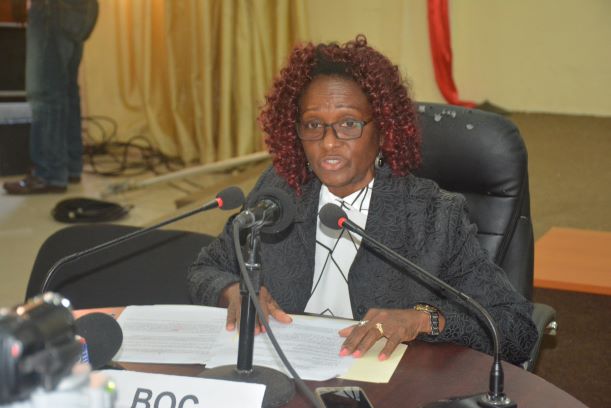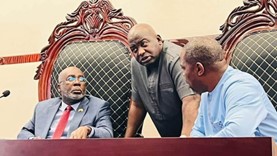Liberians are noted for keeping political grudges and paying back at the polls. A recent example is the election that brought Abraham Darius Dillon to the Liberian Senate—Over 200,000 individuals (members of opposition, no position and ruling position) turned out to elect the Montserrado County Senator last year for feeling let down by the Weah administration and working for months but without salaries. That was a slip that was overlooked and rhetorically defended by the Minister of Finance and Development Planning, Samuel Tweah, but the regime got its payback at the polls.
Now, again, President George M. Weah is beginning to gamble his chances for re-election in 2023 by adding extra financial burden on the ordinary masses to benefit a few of his cronies, and the increment on the prices of gasoline and diesel fuel could just cut the shot for 2023.
In Liberia, there are commodities that determine the financial expenditure of a struggling household, including rice, gasoline/fuel and iron ore. When the prices of these commodities are increased, families either go to bed hungry, are unable to go about their daily activities or are downsized from their jobs.
Information reaching the Hot Pepper suggests that there is gasoline and diesel in country to serve the local market until the end of August 2022—approximately six months—but the conspiracy of increasing the price of the commodity has been in the making a long time ago, and the actors are only tapping on the prevailing circumstance to seal their deal.
According to information, the last petroleum vessel came in on February 14, 2022 and departed on February 16, and brought 12,500 metric tons of gasoline. The vessel goes by the name, “MT BW LYNX”. Besides, a tanker vessel, “MT DUKE”, was here on Tuesday, March 8, 2022, and brought in about 2,400 metric tons of HFO.
With this huge quantity of the commodity in country, one is left to wonder why would government choose to increase the price of gasoline and fuel when it could have prevailed on the sellers to maintain the price until the commodity that is already in stock goes low.
“In Cost Accounting, there is a FIFO/LIFO Theory, which means ‘first in first out’ and ‘last in first out’. In this situation, as some government officials claim to understand the fundamentals of economics and accounting, they should have applied the ‘first in first out’ method, which would have save the people from the inflated price for the next few months, at which time the government may have found a solution to the situation. But contrarily, it appears like they are using the ‘last in first out’ method. But even at that, there is no new commodity in stock that was purchased at the new global price; how then did they come up with the new price?” an instructor at the University of Liberia’s Accounting Department told the Hot Pepper in dismay.
“Typical economic situations involve inflationary markets and rising prices. In this situation, if FIFO assigns the oldest costs to the cost of goods sold, these oldest costs will theoretically be priced lower than the most recent inventory purchased at current inflated prices. This lower expense results in higher net income. Also, because the newest inventory was purchased at generally higher prices, the ending inventory balance is inflated,” the accounting instructor continued.
Speaking to the Hot Pepper on the basis of anonymity, a major gas and fuel importer disclosed that government is playing double-faced with the Liberian people, and what is being concealed is that the new price of gasoline and diesel fuel is an inflated price by the Government of Liberia (GOL) and not the agreed one between them and the importers of the commodities.
According to the importer, when the global crisis began, the importers of oil and gas, along with government’s relevant authorities, including the Ministry of Commerce and Industry and the Liberia Petroleum Refinery Company (LPRC), convened to have an increase on the price of the commodity. However, the importers suggested that the price of gasoline be at US$4.80 and diesel fuel at US$5.10, but this is not the case. “We thought that the government would have appealed to us to reduce the price we suggested, but to our utmost surprise they added about 90 cents on each of the commodities,” the importer revealed.
This startling revelation has caught many by surprise, and they are beginning to wonder about the fate of the country in the next few months.







